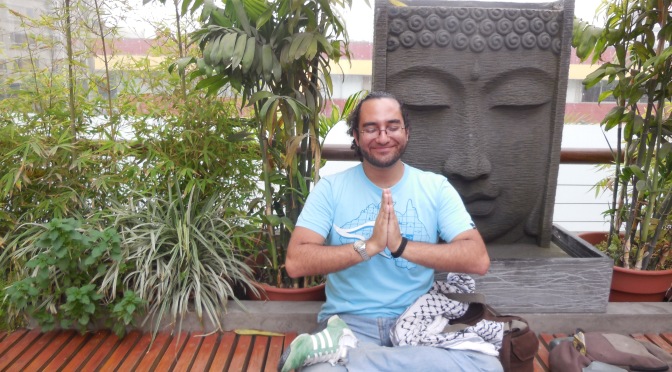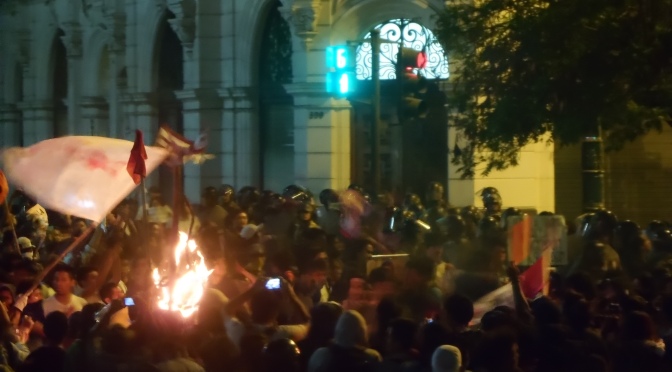Last night I had one of those moments when I just love that I live in a big ol’ messy metropolitan smorgasbord like Lima. In this particular case, I have Salsa to thank.
Since mid-December, I have been attending free Salsa lessons during Sunday evenings. They are taught by two youth who regularly participate in the Joining Hands Network’s youth activities, Norman and Angel.
I headed over for what would be my third class a bit before 4:00 yesterday and arrived around 4:20. The classes technically start at 4:00, but my tenure in Peru left me unsurprised that I was the first to arrive.
After waiting for 10 minutes though, I started to wonder if I had missed an announcement that classes were canceled. As soon as I decided to give it another five minutes, up walked someone that I thought I recognized from past weeks.
He introduced himself as Jairo and asked if I was here for Salsa. Then he informed me that everyone was headed over to Barranco for an “event” and I’d need to pay 10 soles ($3-$4) to get in. I was not really sure what that “event” would be, but I apprehensively agreed. I’m not much of a Salsa dancer, but I valued the chance to keep dance and making new friends in the Salsa circle.
A quick note for context, Barranco is three districts over from where I live, or two bus rides, totaling an hour of transit. This was not exactly a small commitment, but my YAV sense of participation moved me to jump on board.
I asked a few casual questions to make sure that these new friends were who they said they were and off we went in a cab to arrive at the doorstep of the large, admittedly foreboding, Barranco Bar.
I greeted Norman as I walked in, with pumping bass and blazing rhythms greeting me in return. That and a dancefloor packed with some fantastic, amateur Salsa dancers.
It appeared I had stumbled into a white party sponsored by every Salsa school, club, and competition in Lima. Dancers ranged from years of experience to just a few months.
At this point, it might be helpful to remind the reader that I set out that afternoon to attend my third Salsa lesson. Needless to say, I did not light up the dancefloor. The only steps I seemed to get right were those with other feet below them.
An hour in, a club promoter led us all in Rumba lessons. Don’t get your hopes up, I’m not a particularly gifted Rumba dancer either, but it’s still a blast. Halfway through these lessons the lead singer of some mildly famous Salsa band came in to add some musical energy to the lesson.
My poor dancing in mind, I kept a more passive role. It was far more enjoyable to just watch other lifelong dancers blow my mind.
In fact, I got the special treat of watching a choreographed dance by 30 of the most renowned Salsa instructors and professional dancers within the Salsa subculture in Lima, which included Norman. There was some incredible talent on that floor and I for the not the last time that night internally bemoaned my lack of a camera.
After unsuccessfully, but enjoyably trying my feet at a Salsa circle I decided to call it a night. I headed home winded, but just pleased with the direction my Sunday had taken. Lima’s got it’s perks, no doubt about it.






